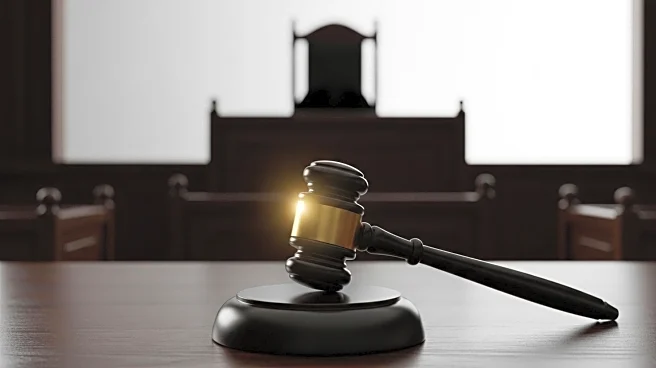What's Happening?
Ryan Routh, accused of attempting to assassinate President Trump at his Florida golf course, argued in court that prosecutors have not proven an assassination attempt. Despite his claims, U.S. District Judge Aileen Cannon denied his motion for acquittal, allowing the case to proceed to jury deliberation. Prosecutors presented evidence that Routh aimed a rifle at Trump through shrubbery at the golf course, although the gun was never fired. Routh, representing himself, faces multiple charges, including attempting to assassinate a major presidential candidate and firearm violations. The defense is set to begin its case, with Routh planning to call witnesses, including a firearms expert.
Why It's Important?
The case highlights the ongoing security concerns surrounding high-profile political figures in the U.S. and the legal complexities involved in prosecuting alleged assassination attempts. The outcome could influence future security protocols for public figures and impact legal standards for proving intent in similar cases. The trial also underscores the challenges of self-representation in complex legal proceedings, potentially affecting Routh's defense strategy and the trial's outcome.
What's Next?
The defense will present its case, with closing arguments expected soon. Jury deliberation will follow, determining Routh's fate. The trial's progression may prompt discussions on security measures for political figures and legal standards for proving assassination attempts. Stakeholders, including legal experts and security agencies, will likely monitor the case closely.









